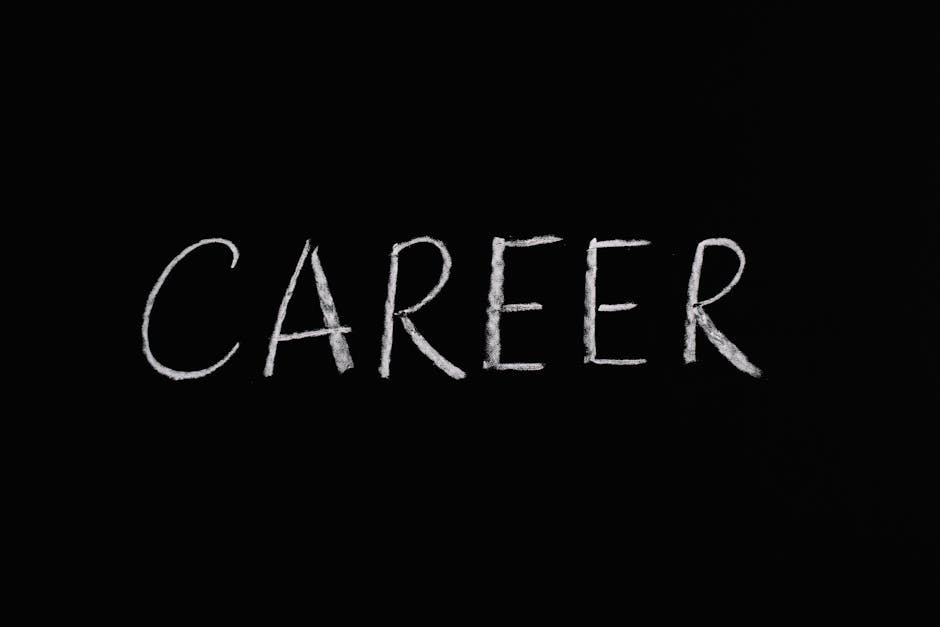The Future of Work: Technology, Flexibility, and Global Talent
The way we work is changing at a faster pace than ever before. From intelligent automation to the normalization of remote teams, modern professionals are navigating a rapidly shifting employment landscape. In 2024 and beyond, success in the workforce hinges on adaptability, specialized skills, and the ability to operate in flexible—and often global—environments.
Automation and AI: Redefining Human Roles
Automation and artificial intelligence are no longer futuristic buzzwords—they’re shaping today’s workflows. While these tools streamline routine tasks, they also redefine the value of human input.
- Repetitive tasks are increasingly automated, requiring fewer human hours
- Demand for uniquely human skills—like creativity, empathy, and critical thinking—is growing
- AI is a partner, not a replacement: smart professionals learn how to use it to amplify their capabilities
The Rise of the Gig Economy and Portfolio Careers
Traditional 9-to-5 roles are giving way to more flexible employment models. Whether by choice or necessity, more individuals are building careers that consist of multiple income streams and shorter-term projects.
- Freelancing and contract work are becoming commonplace
- Professionals are curating diverse skillsets across industries
- Career progression is less linear and more personalized
The Shift to Remote, Hybrid, and Decentralized Work
Work is no longer tied to a physical office. Organizations are evolving their structures to support talent across various locations and time zones.
- Remote-first and hybrid models are standard in many industries
- Teams operate asynchronously, driven by outcomes rather than hours
- Companies are rethinking collaboration tools and office space investment
Global Skills Mobility and Cross-Border Competition
Geographic boundaries are blurring fast. Thanks to remote technologies and digital platforms, employers can recruit from a global pool—making competition fierce and opportunities wide open.
- Professionals must differentiate themselves with specialized, in-demand skills
- Language and cultural agility become important assets
- Companies are investing in global compliance, virtual onboarding, and diverse hiring practices
What This Means for Workers
To thrive in this environment, professionals must embrace:
- Lifelong learning and upskilling
- Networking across digital communities
- Flexibility in roles, industries, and locations
The workforce of the future is decentralized, tech-augmented, and highly dynamic. Those who lean into change—not resist it—will lead the way.
The Future of Education Is Continuous, Flexible, and Practical
The way we think about education is evolving rapidly. In a world where skill demands shift constantly, the one-time degree model is no longer enough. Learning must happen throughout life and in formats that prioritize real-world application.
Lifelong Learning: Beyond the Diploma
Education can’t afford to end at graduation. In 2024 and beyond, professionals across sectors will need to update their knowledge regularly just to stay relevant.
- Learning is a marathon, not a milestone
- Professional development becomes part of career maintenance
- Lifelong learners have a competitive edge in the job market
Skills-Based Learning: Proving What You Can Do
Employers are increasingly valuing abilities over academic credentials. This shift means educational models that emphasize practical application and skill demonstration are gaining ground.
- Hiring trends favor demonstrable skills over degrees
- Micro-credentials and digital badges showcase targeted expertise
- Portfolios and project-based assessments matter more
Flexibility Wins: Learning on Your Terms
Traditional schedules don’t work for most busy adults trying to gain new skills. That’s why flexibility is rising as a top priority in education delivery.
- Modular course formats let learners progress one step at a time
- On-demand access enables learning outside the 9-to-5 window
- Balance between work, life, and learning is now a must-have, not a luxury
Industry and Education: Closing the Gap
Schools and training programs are increasingly collaborating with businesses to ensure their content is relevant and up to date. This feedback loop helps learners graduate prepared for today’s challenges—not yesterday’s.
- Companies shape curriculums based on real-world needs
- Internships, mentorships, and co-designed programs bridge theory and practice
- Education becomes aligned with economic demand, not detached from it
The current education model is creaking under the weight of a world that’s sprinting ahead. Designed in an era of chalkboards and factory lines, the traditional system is still handing out degrees while employers are asking for portfolios, experience, and adaptability. Classrooms are often decades behind in teaching what the job market actually needs—things like digital literacy, critical thinking, problem-solving in real time, or how to pitch an idea in under 90 seconds.
Students aren’t blind to this gap. More are questioning the return on investment of formal education, especially when many walk into the job market saddled with debt and outdated skills. Meanwhile, industries are evolving overnight. AI, remote work, green tech, creator economies—none of these fit neatly into a lecture format built for memorization.
The stakes? A workforce split between those who can adapt and those who were trained to play by old rules. That’s a recipe for frustration, inequality, and missed innovation. If institutions don’t adjust soon, they risk becoming irrelevant to the very people they’re supposed to equip for the future.
The Evolution of Vocational Education: Smarter, Digital, and Work-Ready
Vocational education is no longer seen as a second-tier option—it’s evolving into a smart, tech-enabled path to real-world careers. In 2024, learners and employers alike are recognizing its value in a rapidly changing job market.
Smarter, Digital Learning Environments
New technologies are transforming how vocational training is delivered and scaled.
- Virtual simulations and AI tutors improve hands-on learning across industries
- Learning management systems (LMS) offer personalized, data-driven paths
- Hybrid and fully online programs enable anytime, anywhere access
Co-Designed, Career-Ready Programs
A growing number of universities are forming partnerships with industry leaders to co-create programs that align directly with workforce needs.
- Companies help shape curriculum to match in-demand skills
- Programs often include internships or real-world case studies
- Students graduate with qualifications and practical experience employers want
Micro-Credentials and Accelerated Options
The traditional four-year degree isn’t the only path to success. Alternative credentialing is booming:
- Bootcamps: Fast-track learning in coding, design, and data fields
- Micro-credentials: Targeted skills with stackable certifications
- Edtech platforms: On-demand, flexible, and often more affordable
These alternatives appeal to learners looking to pivot careers or build specific capabilities without long-term commitments.
Policy Support for Lifelong Learning
Governments and institutions are adapting, recognizing the need for continual upskilling:
- Public funding for short courses and job-specific training
- National initiatives supporting digital literacy and industry placement
- Regulatory frameworks that validate and standardize alternative credentials
Vocational education in 2024 is focused, flexible, and future-proofed—designed for people who want to grow their skills and remain competitive in a dynamic economy.
Traditional education wasn’t built for pivoting. It leans heavy on theory—long lectures, standardized tests, rigid grading—but the world it’s supposed to prepare students for isn’t standing still. Careers evolve faster than most textbooks can be revised, and that gap is showing.
We’re seeing it in the skills mismatch. Graduates might ace exams, but struggle with digital fluency, adaptive thinking, or clear communication—skills you can’t fake once you’re in the real world. Courses remain static while industries become fluid. Meanwhile, real-world problem-solving is often left out of early learning, leaving students with sharp minds but dull tools.
For content creators, brands, even viewers, this matters. Because the landscape favors those who can shift gears, self-teach, and connect ideas across disciplines. Those traits aren’t random—they grow from environments that emphasize flexibility over memorization. In 2024, success comes not from knowing the most—but from staying sharp in motion.
Equity, Access, and the Fragile Future of Opportunity
As the digital world sprints forward, not everyone is keeping pace. Creators in small towns with unstable internet, or communities locked out of the latest tools and training, are watching the vlogging revolution from the sidelines. Access isn’t just about bandwidth and devices anymore—it’s about who gets the chance to build a voice, an audience, a business.
This is where policy and public funding come in. Governments have a decision to make. Either invest in widespread access to media literacy, production tools, and fast connectivity—or watch as digital inequality deepens economic divides. So far, support is uneven. Some countries are pushing grants and rural creator initiatives. Others leave it all to market forces, betting platforms will self-regulate and self-correct. That’s not happening fast enough.
Vlogging is more than self-expression—it’s business, education, news, activism. As the nature of work changes, especially with AI automating parts of the economy, content creation is where many people turn for opportunity and stability. Education systems need to catch up, too. Teaching content strategy, digital storytelling, and sustainable monetization shouldn’t be reserved for elite media schools.
In a world shaped by climate stress, economic volatility, and political noise, creators are becoming frontline communicators. The more diverse these voices, the more resilience society has. And if we don’t lower the barriers now, we’re setting ourselves up for a future shaped by the few—for the few.
(You may also want to read: Climate Inaction Is a Security Risk We Can’t Ignore)
Education isn’t just about scale anymore—it’s about intelligence. More degrees, more diplomas, more online courses don’t automatically build better societies. What matters now is whether education actually prepares people for the world they’re stepping into. That means designing systems that teach adaptability, not just answers.
Institutions need to shift. Teaching needs to be less about memorizing and more about navigating uncertainty. Governments need to fund the right things: digital access, teacher training, interdisciplinary programs. Learners, too, have a job to do—they need to treat education as a lifelong habit, not a one-time box to check.
When education is smarter, not just bigger, societies get tougher. They can handle disruption, spot opportunity, and stay relevant in a world that doesn’t slow down. Future-proofing education isn’t just a good idea—it’s a survival plan.




